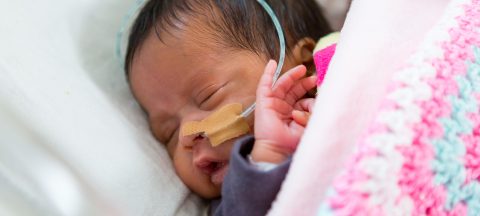Overview
This is a specialised unit aiming to:
- increase your independence
- reduce long-term healthcare needs
- reduce the need for community care once you return home
- increase your ability to do things you want to be able to do
- work together to set goals with you, your family and carers to improve quality of life
- develop therapy plans to aid your recovery and help you return to normal function.
Parking
Parking is available at the Werribee Mercy Hospital site. A pick-up and drop-off zone at the main entrance is also available.
The nearest car park is the P1 car park which is accessed via the main hospital entrance on Hoppers Lane. This car park has a 2 hour limit and limited spaces.
If the P1 car park is full, additional parking is available in the multi-story car park at the back of the hospital. This car park can be accessed from the Princes Highway, after the Emergency Department entrance.
Parking costs are available on the main hospital information page.
Accessible parking is available in the main entrance car park for patients and visitors who hold a valid disability parking permit. Accessible parking is also available near entrances to the Emergency Department, Outpatient Clinic and Maternity Unit.
Patient bus service
The Werribee Mercy Hospital bus service is a free service to help you get around our hospital. The bus transports patients and visitors between the following locations:
- Multi-storey car park
- Hospital main entrance
- Gabrielle Jennings Centre (palliative care inpatient service)
- Outpatient Clinics
The bus operates seven days a week from 8.00am – 8.00pm.
If you need the bus service, please call (03) 8754 3000 to arrange transport.
Getting here
Find us at:
300 Princes Highway
Werribee Victoria 3030
For more information on getting here, visit Werribee Mercy Hospital .
Location details
The Rehabilitation Unit is located in the Catherine McAuley Centre, level 1.
How can people get access?
Enter via the main entrance and take the lift to level 1.
Opening hours
24-hour service
Your appointment
What to do before
What will happen once you are on the ward?
- you will be assessed by our team
- together, we will work with you and your family or carers to set goals for your stay and ongoing wellbeing
- we will develop a plan to help you work towards you goals
- we will offer care and assistance to support you in your activities, and help prevent any falls or pressure injuries
During your stay:
- we will encourage you to get dressed, sit out of bed and, if able, to do things for yourself
- we will assist you to complete therapy and daily activities to work towards your goal(s)
- we will regularly discuss your progress towards your goals with you and your family/carers
- together we will discuss when you are likely to leave hospital. This may change throughout your stay
- we will discuss the supports that you may need when you leave hospital with you and your family or carers, and help arrange these supports
What to bring
- 3-4 sets of comfortable day clothes e.g. t-shirts, blouses, track pants, nightwear, underwear, socks
- suitable footwear: flat lace-up shoes e.g. runners
- toiletries: toothbrush, toothpaste, comb/brush, shampoo, soap, shaving equipment, continence aids
- glasses, hearing aids, dentures
- Medicare and pension card or Department of Veterans’ Affairs card (if you have one)
- any medications you have been taking or using before hospital
- important documents such as powers of attorney, advance care plans
- activities you enjoy e.g. books, crosswords, music, knitting
- photos or personal touches from home if you wish.
More information
Team Composition
The team involved in your care may include:
- consultant geriatrician
- medical staff
- nurses
- occupational therapist
- physiotherapist
- social worker
- speech therapist
- dietitian
- allied health assistant
- pharmacist
- interpreter
- pastoral carer
- diabetes educator
- podiatrist
- ward clerk
- volunteers.
Discharge information
Discharge time to leave the hospital is 10am.
Once you are ready for discharge, the ward will discuss transport home with your family. If you are being discharged to a residential care facility, the ward will arrange ambulance transport for you.
The ward pharmacist will arrange medication for you to take at home or collect from your local pharmacy
A summary of your care will be sent to your local doctor and relevant specialists, to ensure they are aware of what has happened whilst you have been in hospital and any future plans.
Additional support
Services can be arranged to support your recovery. These services could include:
- nursing care, including assistance with medication, wound care, diabetes care, or care of a catheter
- home care
- personal care
- shopping assistance
- therapy such as physiotherapy or occupational therapy, to continue exercise programs and recovery
- transition care program: a time-limited program that offers both bed-based or community-based support for people transitioning from hospital. Assessments for this program are undertaken by our team; we determine specific goals to assist with your recovery. Once you have been assessed, the care coordinator will discuss your care plan with you, or your family or carers. Fees for the service may apply. For more information about the transition care program, please visit: https://www2.health.vic.gov.au/hospitals-and-health-services/patient-care/rehabilitation-complex-care/transition-care-program
Alternatively, phone enquiries about the Transition Care Program can be made on 03 8754 3824
Who to call if you have concerns afterwards
If you have any medical concerns after your discharge from the unit, please consult your GP or call the GEM ward on 03 8754 3033.
For health professionals
The Rehabilitation Unit supports people who have had an injury, illness, surgery or medical condition, or who have a disability and are finding it difficult to engage in everyday activities. We offer therapy to try to improve a person’s function and independence, and aid in their recovery.
Procedural information
The aim of rehabilitation is to enable patients to:
- increase their independence by working with them, their families and carers to set goals for therapy and their ongoing wellbeing
- provide supportive discharge planning in collaboration with the patient and their family or carers.
This is achieved by:
- stabilising the person’s medical condition
- participating in comprehensive medical assessment
- developing therapy programs tailored to each person’s abilities.
The subacute unit offers:
- a team approach to identifying healthcare issues and management
- patient-directed goal setting
- functional rehabilitation programs tailored to each person’s ability
- provision of equipment for use while in hospital and resources for equipment required for discharge
- referral to medical specialists and other health professionals
- medication management
- nutrition and dietary services
- family and carer meetings
- discharge planning through liaison and referral to community support services, including outpatient therapy programs and supporting patients, families and carers with the residential care pathway if required.
How to prepare the patient
We encourage patients in the subacute ward to get up and get dressed, sit out of bed and, if they are able to, do things for themselves each day.
Patients are assessed by therapists who develop individual therapy timetables.
Patients will have ongoing management of their medical needs by the specialised team and referrals to specialised physicians as required. Appropriate diagnostics and treatments will be determined by this team in collaboration with other specialists where appropriate.
What/when you should refer to us
Referrals can be forwarded when the patient is medically stable and they have been assessed by a geriatrician or rehabilitation physician who has recommended rehabilitation.
What/when you should not refer to us
The Werribee Mercy Hospital subacute unit cannot take referrals for patients requiring rehabilitation following:
- major trauma
- burns
- amputation of lower limbs.
The unit is also unable to take a referral if the patient is not medically stable.
Additional contact details
Inpatient Subacute Ward
Werribee Mercy Hospital
Level 1 Catherine McAuley Centre
Werribee Vic 3030
Phone: 03 8754 3033
Fax: 03 8754 3122

Donate to the Mercy Health Foundation
The Mercy Health Foundation supports programs to improve the health and wellbeing of those in need. Your donation makes a difference in hospitals, nurseries, aged care homes, and the general community.

Providing feedback
We value feedback from the people we care for, including from your families, friends, carers, and our broader community. Find out how to register a concern, complaint or compliment, or make a suggestion for improvement at Mercy Health.

Work for Mercy Health
Midwife and nurse roles are available. Find out about life and work at Mercy Health and apply today!


